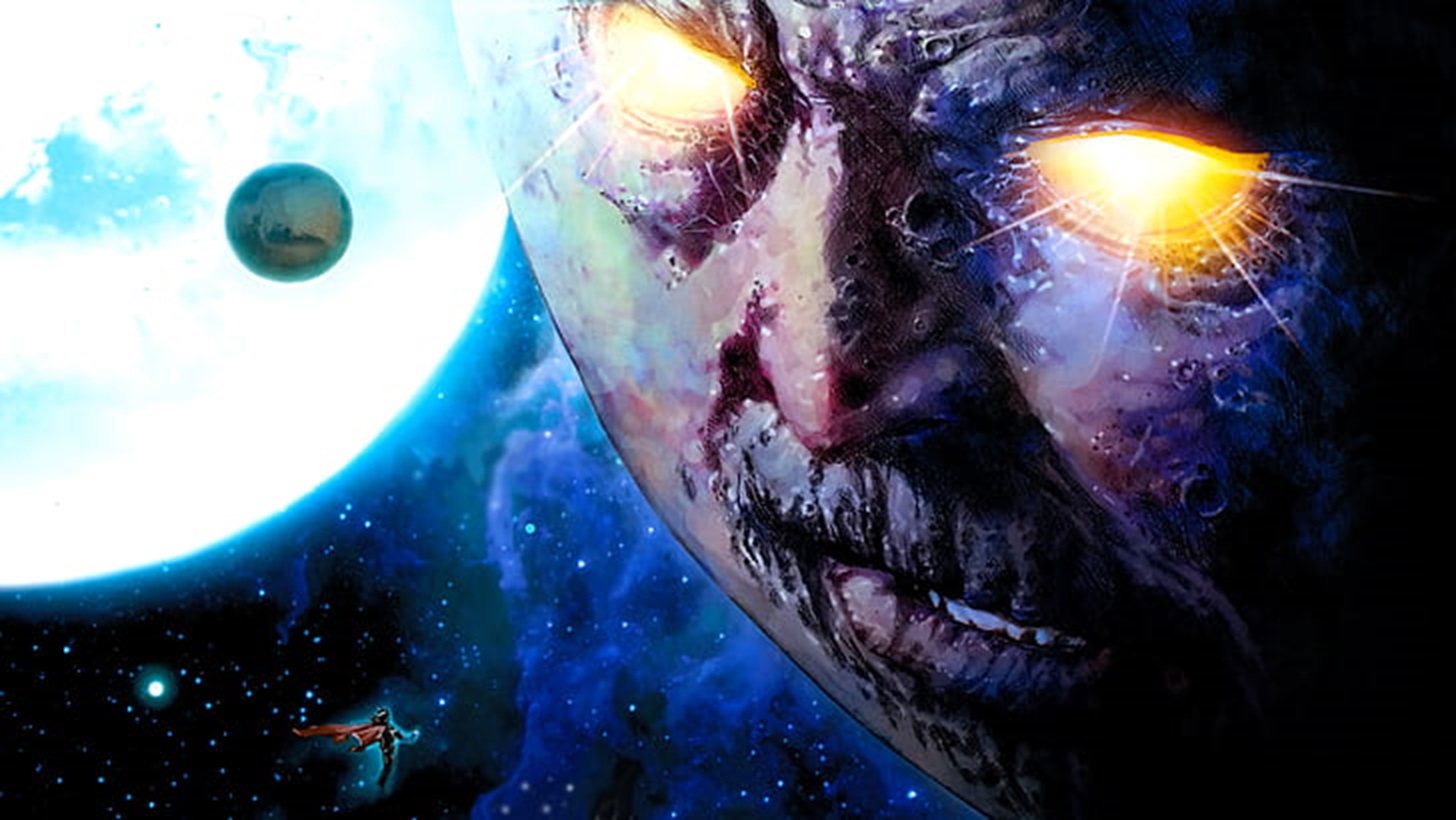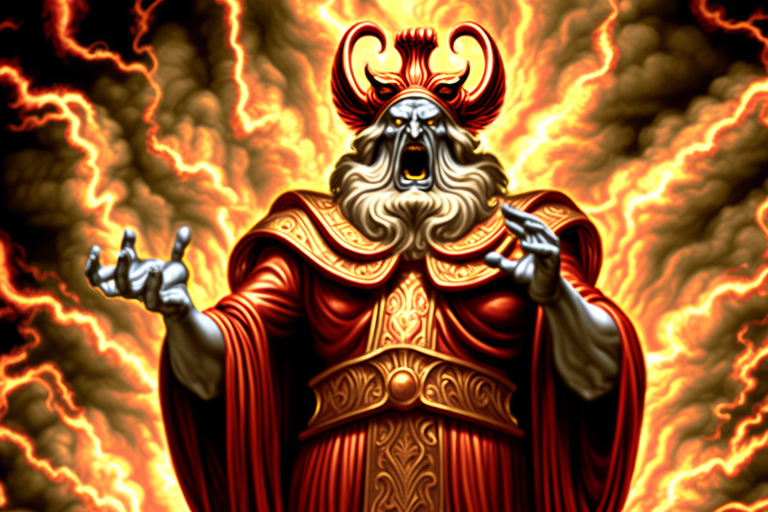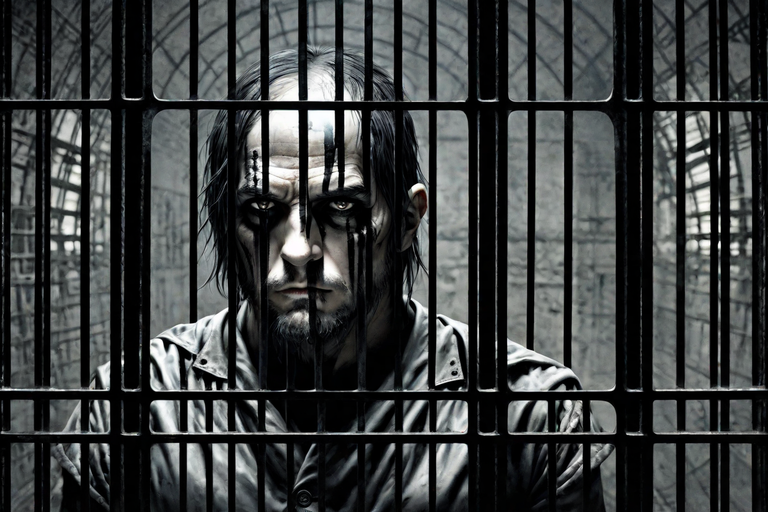If we were to pick just one element of Gnostic cosmology to try to apply to psychology a good one to start off with might be the idea that the visible world which we see all around us is ruled over by Satan whilst the invisible world – which is the world of spirits – is ‘ruled over’ (although this isn’t the right way to put it since this realm is characterised by freedom not constraint) by the God of Light and Love, who is the true God (and not the fake, blustering and bellowing ‘father-figure’ one). This way of looking at things doesn’t seem – on the face of it – to have an awful lot of relevance to life in the 21st century, unencumbered as we are by very much in the way of belief in either the influence of Satan or the existence of invisible spirits, but there is nevertheless a deep principle here waiting to be uncovered. This ‘deep principle’ has to do with the notion of free will, which we all believe ourselves to have. Our unquestioned belief in our own free will (and our power to deliberately change ourselves or the world on this basis) gives rise to the positive view of psychology, along with the positive view of what psychological therapy entails. Our free and genuine volition is taken for granted in this view, as is the idea that we know for sure what direction ‘our own good’ lies in. ‘Our own good’ lies – we firmly believe – in the returning to us of our power to control, which is to say our power to know what is helpful and what is not helpful and then act effectively on this basis.
All of these assumptions are entirely false from the point of view of Gnostic psychology however – they couldn’t be more false. They couldn’t be more false because they are perfect inversions of the truth. From the Gnostic viewpoint – as from all ‘philosophically negative’ viewpoints – we are always starting off from a false basis. That’s a given. We start from a false basis and then we proceed heedlessly on this basis and what enables us to do this is the fact that we never radically question our starting position. We never under any circumstances question our basis and that is precisely how we are able to proceed in the positive way that we do proceed. Instead of questioning our basis we aggressively assert it to the very best of our ability and so this is where the ‘inversion’ of which we speak comes in. This is an inversion – needless to say – because aggressively asserting our ‘unexamined basis’ at every opportunity is the perfect antithesis of radically questioning ourselves. This aggressive assertion (or ‘projecting outward’) of our ‘assumed but untrue basis’ is what gives rise to the phenomenon of the positive self or ego, and our supposed ‘free will’ – obviously enough – has to do with this positive self or ego and nothing else. What else would it have to do with? As soon as we say this it becomes obvious what the problem is with this automatically assume notion of ‘free will’ or ‘free choice’ – how can there be any such thing as free will when everything we do and think is predicated upon the dubious principle of ‘not questing our basis’?
When we are in the positive mode, then everything we do is founded upon lack of freedom, not freedom. We are not free to radically question ourselves (or ‘examine ourselves’) and so how can free will ever come about as a result of this? How can freedom come about as a result of our lack of freedom to question our basis? Everything about us rests upon this ‘deficiency in freedom’ – it comes before everything, it is prior to everything else in our lives, although we don’t know it. Not knowing anything about our ‘decision never to examine our basis’ is crucial to what we might call our ‘positive’ (or ‘extrinsic’) freedom; if we knew this then our ‘positive freedom’ – which we make such a great song and dance about – would immediately be revealed as quite worthless. When we don’t know about this decision, on the other hand, then it is as if a whole world of (supposed) freedom lies ahead of us, just waiting to be enjoyed! It’s because we want so badly to enjoy it (to achieve whatever satisfactions we can from it and attain whatever attainments there are to attain in it) that we are so infinitely resistant to taking on board the suggestion that ‘our basis is real only because we have made the covert decision never to question it’.
What type of freedom comes out of the decision never to question our basis when this is a decision that we know nothing about? Saying that we are ‘proceeding on a basis of a decision that we don’t know anything about’ means that we are proceeding from ‘a lack of freedom’ (because [1] we are not free to question and [2] we are not free to know that we are not free to question) and so whatever comes out of this situation is certainly not going to be freedom! When this is the case then there can be no such thing as ‘free volition’ only ‘choices that are being conditioned by the biases that determine our outlook without us ever being able to know about these biases’. Conditioned freedom is disguised slavery, in other words. The only way for us to become free would be for us to question the biases that we never do question and examine the basis for our perception of the world’ that we never to examine. When Socrates says ‘The unexamined life is not worth living’ it is this type of ‘radical examining’ that he is talking about; it is however all too easy for us to interpret this in an entirely trivial way and miss the point entirely. Examination of the trivial sort is easy – we examine this and examine that and on the basis of our examining we might well come up with some sort of conclusion or other but this type of ‘trivial reviewing of the world’ is carried out via our unexamined basis, which of course makes that basis all the more invisible to us. Just as conditioned freedom is ‘slavery in disguise’ therefore, conditioned perception is ‘blindness in disguise’.
When Socrates talks about ‘the unexamined life’ he speaking in a very profound way; he is speaking as a negative philosopher (which is the only type of philosopher worthy of the name). Everyone who hears this line will interpret it in the light of their own understanding and for this reason very few of us will see the implications of what is being said here. What Socrates is saying is that when we stop ‘proceeding in a positive manner’ (and so ‘question the basis on which we see the world’) then our perceptions are freed from their conditioning and the whole world will be radically changed as a result. Beforehand, we were only able to perceive the world on the basis of ‘who we take ourselves to be’ (which is a construct of thought) whilst afterwards we no longer see things on this basis. When I see the world on the basis of ‘who I think I am’ then what I see are simply my own projection – what I am seeing are my own unrecognized projections and so I’m not really seeing anything. I’m just seeing myself and ‘myself’ is an illusion. The unexamined life is not worth living therefore because everything I say and think and do is done on the basis of ‘an illusionary platform’. I’m starting off from a position that doesn’t exist but which seems to because I have made a point of never questioning it, because I made a point of ‘blindly and compulsively acting it out’. By positively acting out this unexamined position we ‘make it real for ourselves’ and yet ‘making it real for ourselves’ turns out not to be such a great thing at all since what happens then is that we get to live in a world that is made up of our own projections. We get to live in a projected world that we can’t recognise to be our projection and this is the ultimate form of ‘alienation from the world’ (or ‘alienation from life’) that there is, as Carl Jung says.
As a result of not recognising our projections (or ‘not examining our basis’) we get to live in a way that is alienated from life, and we also get to completely nullify ourselves. To live in a world that is made up of our own unrecognised projections is to ‘enter into the Nullity’, which isn’t even a concept to us. The ‘Nullity’ isn’t a word that we have in our vocabulary. Entering into the Nullity is our guarantee of ‘a life not worth living’. The Null World contains nothing but suffering – as you might expect – and not only does it contain nothing but suffering (which is bad enough) there is no way out of it. The Null World is a lobster pot and we are the lobsters. The null world is a lobster pot because the way in is very easy and the way out is very hard – the way out is very hard because we have to make ourselves extraordinarily tiny and we don’t know how to do that. Not only do we ‘not know how to do it’, we don’t have any concept for it either. The positive doesn’t have a concept for the negative: there is no understanding of actual freedom when we are living in a world that is constructed on the basis of extrinsic or conditioned freedom. The problem is that the projected world is the only world the ego-identity can ever have, sterile as it might be. It can’t leave this world and yet still have any existence of its own; the ‘way out’ of the positive world’ is to radically question ourselves, as we have said, but the thing about this is that if we radically question ourselves then we cease to exist. When we examine the basis then the basis ceases to exist since it was only by not examining it that it got to (apparently) ‘exist’ in the first place. When I question the basis that is ‘myself’ then this ‘myself’ ceases to exist and this is precisely the price that I don’t ever want to pay.
This brings us to a consideration of the difference between the ‘positive’ and the ‘negative’ approach to psychology – positive psychology (we might say) ultimately seeks to address the problem of the suffering that comes about as a result of ‘living in the positive world’ without ever acknowledging that there is such a thing as a positive world (which is to say, ‘without ever acknowledging the need for us to recognise our own projections as our own projections’.) This creates an absurd situation – it creates an absurd situation because we are using the very thing that is causing the problem to try to fix the problem. The thing that is being used to try to solve the problem (the thing which is also – unbeknownst to us – the cause of the problem) is thought – thought is our tool and it is also the problem that we are seeking to overcome by using that tool! Thought is nothing other than extrinsic freedom, which is the ‘type’ of freedom that we have when we ‘proceed unreflectively on the basis of the positive self’, and the positive self is of course the very thing that we trying to save in all this. The ‘absurd situation’ is this therefore: the thing that we trying to save is the positive self and the way we are to go about this is through [1] our own volition and [2] by using thought as our guide. This is ‘positive therapy’ in a nutshell. The problem with this (the problem that we can’t see) is that [1] our free volition isn’t free volition at all but a fundamental ‘lack of freedom’ that is programmed into the system in such a way that we can never be aware of it, and that [2] what we call thought’ is a manifestation of this very same lack of freedom’. Thought is disguised slavery, just as our so-called ‘free will’ is.
It’s not just the case that the sense of ‘positive selfhood’ that we are operating on the basis of relies on the Positive World’s ‘inherent absence of freedom’, this cherished sense of self also absolutely relies on us not seeing the absence of freedom for what it is, but rather on us seeing it invertedly ‘as actual honest-to-goodness real freedom’. There is a simpler way of explaining this is and that is to make the observation that the positive self, the volition that the positive self experiences itself as having, and the rational thinking that it experiences as guiding it (or which it sees as being ‘its tool’) are all one and the same thing. The positive self, its supposedly ‘free’ volition, and its supposing tool (i.e. thought) are all ‘the absence of freedom’ – they are, each one of them, manifestations of the very same deterministic system, which runs on the fuel of what JG Bennett calls negative freedom. Negative freedom means that whilst we think that ‘we’re doing it’, really, ‘it’s doing us’! ‘It’s doing us’ but we have the perception that ‘we’re doing it’ and this deluded state of affairs is absolutely essential for the game of the positive self to continue. This illusion that we are free when we are not, that we have volition when we don’t, is the essential precondition for the whole show to carry on. Positive psychology/therapy seeks to free us from our mental suffering (the true reason for which is unknown to us) by utilising our thinking, by utilising our ‘freedom’, by utilising our ‘true volition’ even though it is the deluded belief that that is ‘our’ thinking, ‘our’ freedom, ‘our’ volition, which is generating all our neurotic suffering in the first place. This irony is the most utterly extraordinary thing to contemplate, although – needless to say – we never do contemplate it.
All this comes down to the idea that there are two types of space, not just the one. There is positive space (i.e. space that is ‘stated, or ‘defined’) and there is negative space (i.e. space which is ‘unstated’ or ‘undefined’) and the rub here is that positive space is space with absolutely no freedom in it at all, not even the tiniest smidgen of it. There isn’t even a whisper of freedom in positive space and this is rather odd because freedom is all there is – everything comes down to freedom in the end! Everything comes down to freedom in the end (or in the beginning) because whatever restrictive situations we might enter into, we always do so freely. Restriction is always ‘superficial’ and ‘arbitrarily imposed’ whilst freedom is always profound’ and ‘choiceless’ (as Krishnamurti says). This might not seem to be particularly obvious when we look at the physical universe but the same principle always remains true – the physical universe is ‘physical’ precisely because it follows rules, but all rules – ultimately – come out of freedom. We can say therefore that there are two realms – the realm of negative space and the realm of positive space and we can also say that positive space is associated with ‘definite objects’ or ‘concrete things’ (which are subject to deterministic laws). Going back to the Gnostic framework that we started out by talking about, ‘the physical or tangible realm’ can be equated with ‘positive space’ and we can say – therefore – that the principle behind positive space is a satanic one. Positive space is not satanic because it has no freedom in it, it is satanic because it has no freedom in it whilst presenting itself as freedom. One of the titles of Satan is ‘the Great Deceiver’, after all! We could of course equally well say that positive space is the realm of Mara, Lord of illusion, but since we started out speaking in Gnostic terms will ‘stick with Satan’ for the time being. The whole point of the Gnostic concept of the Demiurge (who is also the Devil) is that he flies under a false flag inasmuch as he explicitly claims – as we see right at the beginning of The Hypostasis of the Rulers – to be the one and only true God. The corollary of this is that this world which we see all around us is not (due to the satanic influence) seen as a positive construct but as the one and only true world. We see it as the only and only true world and on this account we never think to look beyond it. We are soul sparks trapped in a false, deterministic creation, which is exactly the Gnostic representation of our situation. We only have time for what is known, for what is definite or concrete, and so we don’t realise that this world of appearances isn’t real. Mara doesn’t tell us that he’s tricking us, after all! We only have time for the Domain of the Known And The Concrete and so we never look beyond this prison world, we don’t realise that there is an invisible, undefined (or ‘subtle’) world all around us which is the actual true source of our being.
Art: Dali, Lobster Phone






